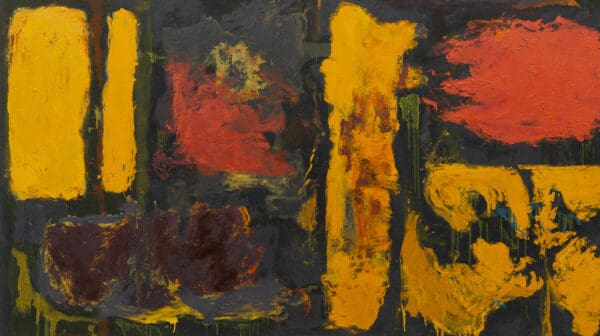
Making Space at the Table
NAP Contemporary’s group show, The Elephant Table, platforms six artists and voices—creating chaos, connection and conversation.
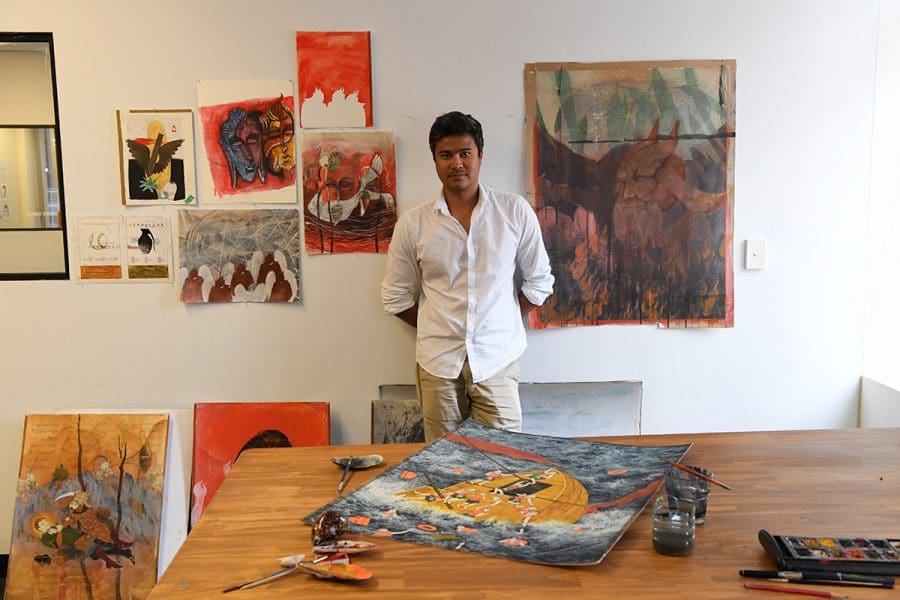
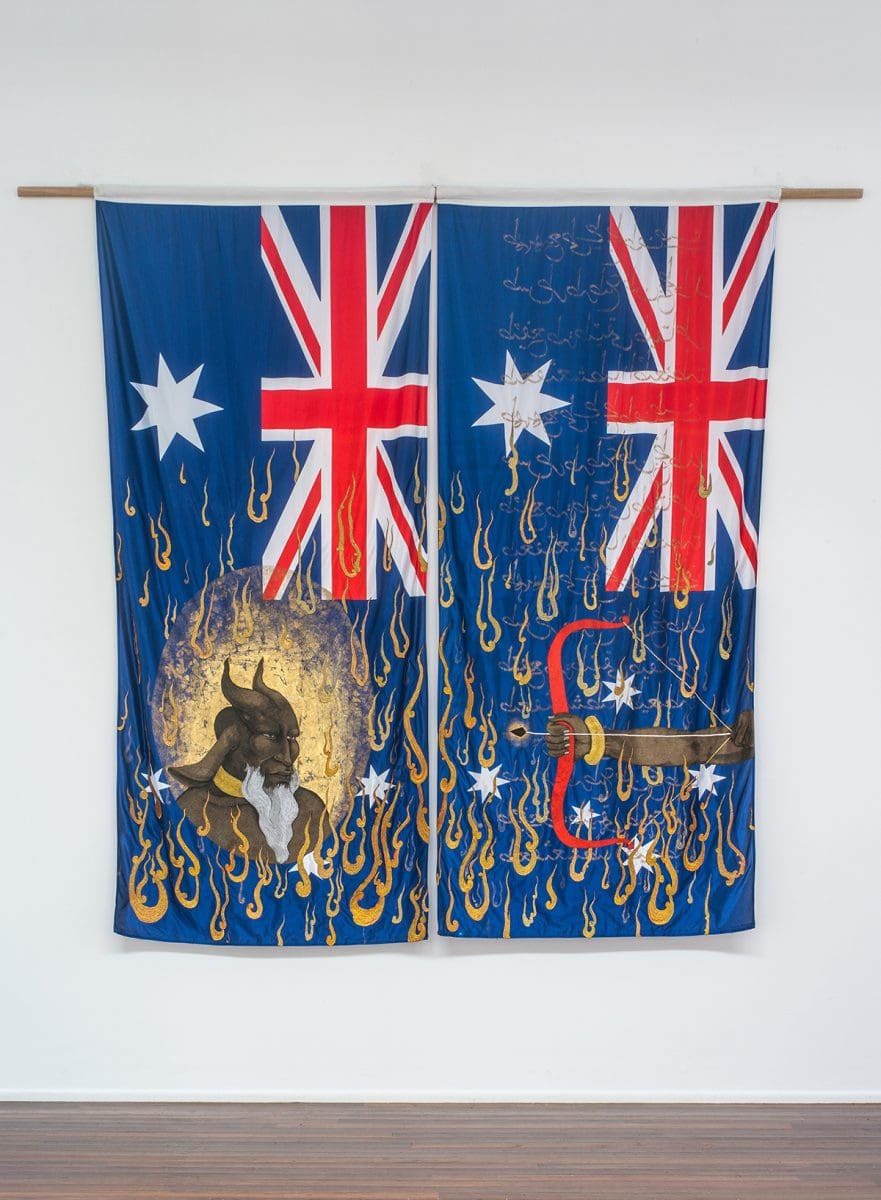
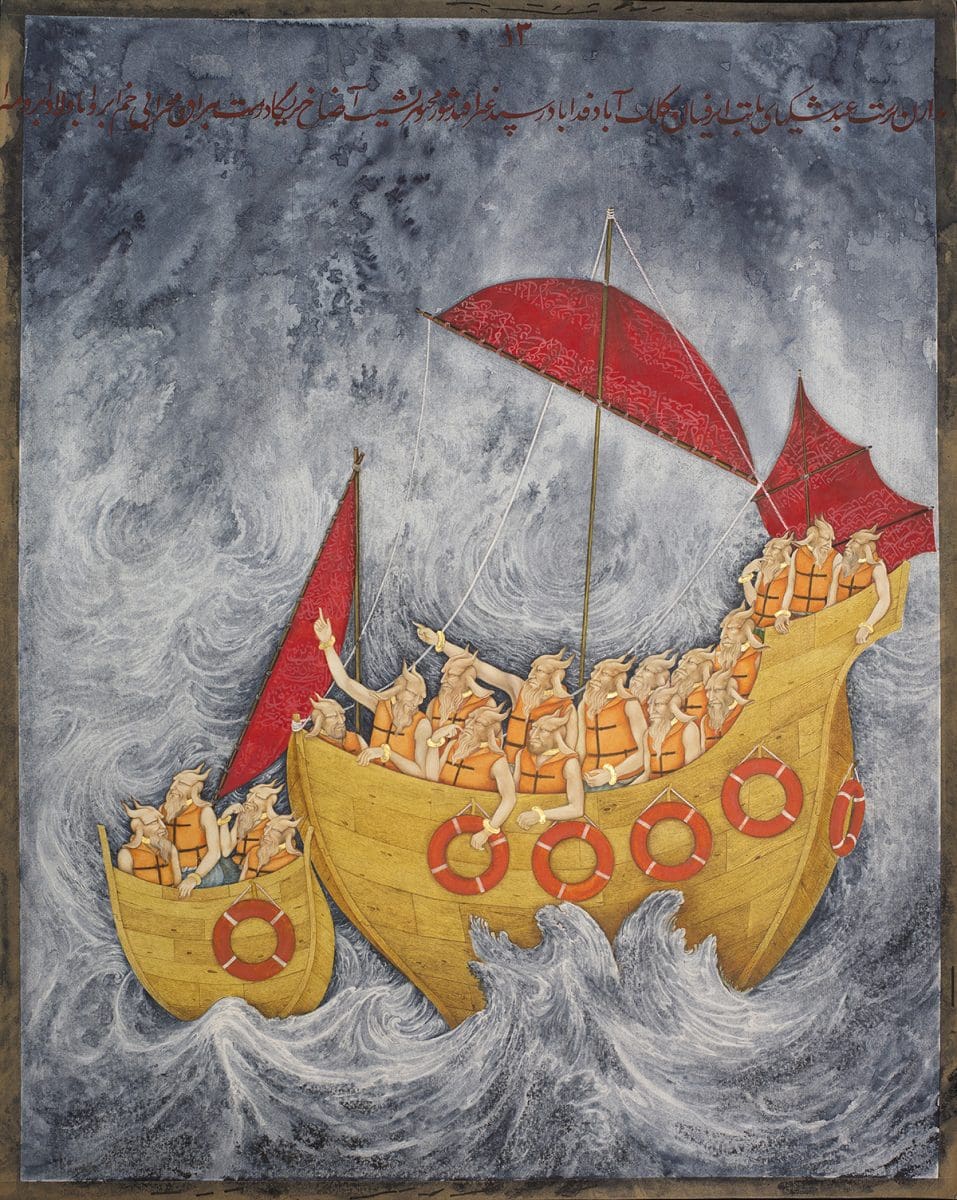
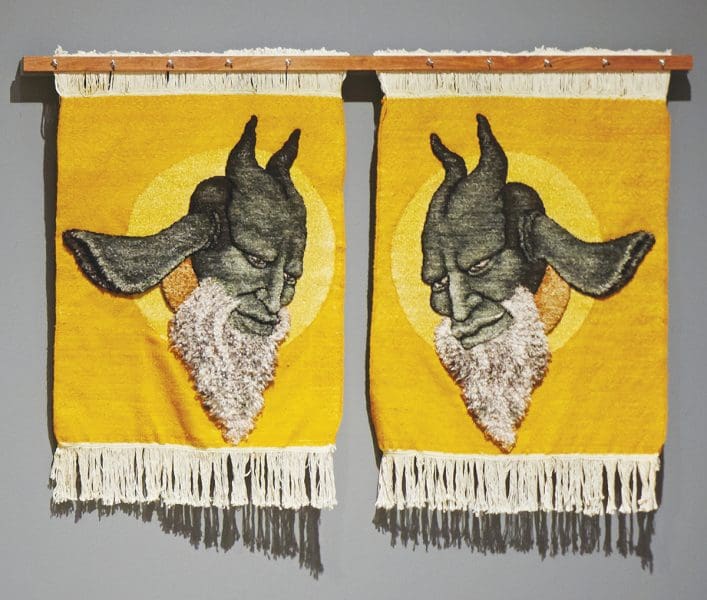
“My grandfather was a storyteller,” says Sydney-based artist Khadim Ali. “He was a singer of the Shahnamah, a book written in the Ghazni Province of Afghanistan, at the court of Sultan Mahmud Ghaznavi in 1010 AD.” Growing up as a refugee in Pakistan, listening to his grandfather recite Persian literature, Ali observed the interrelationship between lyricism and political expression. “In Pakistan and Afghanistan where everybody is disturbed by the political situation, poetry is the lubricant, the medium that creates more tolerance.”
The Afghan community in his neighbourhood of Blacktown has been shaped by perilous sea crossings and lengthy, semi-punitive immigration proceedings. According to Ali, many “live in limbo, on bridging visas, without the right to study or bring their families here. The strict immigration process is giving them a sense that they don’t belong and their presence is illegal. This otherness is dehumanising, it’s demonising.” An indefatigable narrator of Afghan loss and hope in Australia, Ali is supported by the New South Wales government’s prestigious Western Sydney Arts Fellowship to produce a series of ambitious projects throughout 2017 in Australia, Afghanistan and Pakistan.
The first of these is a mural for The National: New Australian Art, a multi-site survey of novel Australian artmaking. The Arrival of Demon stretches the length of the Museum of Contemporary Art’s (MCA) 15-metre foyer, which opens onto Circular Quay. Alongside bustling ferries and passenger ships, Ali gives an allegory of refugees arriving by sea. Horned figures – demonised new arrivals – gather on Australian soil, though they have not yet entered Australian communities, gained citizenship, or experienced belonging. They merely wait, impassive. A wreath of golden eucalyptus leaves signifies “the imagined golden land of Australia. Behind them is fire, red smoke, which they have left behind to come to this place, in which they are not sure if they are claiming their humanity or not.”
Khadim Ali relocated to Australia in 2009, having distinguished himself as a prolific painter and a master of classical miniatures, murals and calligraphy. In Australia he continues to draw from a trove of Persian symbolism: his work teems with labyrinthine pattern, expressively posed beasts and cadenced lines of calligraphic verse. The mythic proportions of this style elicit passion for Ali’s localised subjects: the welfare of Sydney’s Hazara community, the tedium of waiting for citizenship, the peace of the Australian landscape.
Later this year, Ali will mount two solo exhibitions in Lahore, Pakistan and Kabul, Afghanistan. The artist feels a responsibility to articulate the progress of his painting, from its Afghan roots to its recent Australian chapters. “This is very important: to show the evolution of the work, its elements and colours, in the place where it began.”
This synthesis of tradition with contemporary political and social issues flourishes in Australia, where multi-culturalism is a national byword. “People are welcoming and accepting. Some have seen Afghan or Persian art before. This is something extraordinary for me.”
This year Ali will also exhibit at Blacktown Arts Centre (the heartland of Sydney’s Afghan community) alongside four other Afghan-Australian artists. He hopes this exhibition will expand awareness of the poeticism and humanity of Persian art, in defiance of the dramatic negative headlines that pervade Australian reporting on Afghanistan. “We are exhibiting for the community,” he enthuses. “It is a communication with the community,
to find our place, and respect.”
The circumstances that drive Hazaras to seek asylum are gut wrenching: violence, cultural persecution. The journey to Australia is also risky. Drowning and separation of families is common. Art is Ali’s way of bearing witness to the grave realities of migration, “I came here on a prestigious visa, and I don’t take it for granted. I’m looking at these matters as an Australian citizen, with a right to see critically what is around me. I also look at myself as a unit of this thing called humanity. I feel the pain, and my work is a reflection of that feeling.”
Characteristically, Ali recalls his 2015 citizenship ceremony as significant not just for himself, but for its implications for other Afghan refugees – “I held the Australian citizenship in my hand and I felt pride, confidence, belonging to this land. It was something I never imagined while living in the war zone. I want every person seeking asylum in Australia to taste this pleasure.”